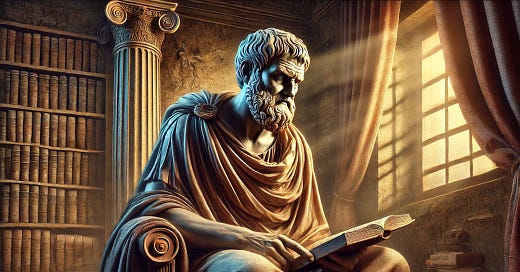Epictetus's Secrets to a Peaceful Mind
Discover how Epictetus’s teachings on control and acceptance can guide you to inner freedom. Learn to focus on what you can control and embrace what you cannot.
Have you ever felt overwhelmed by events happening around you—stressed by things you can't change, or anxious about the future? I remember a time when I was caught in traffic on the way to an important interview. Every minute felt like an hour, and the frustration built up inside me. I honked, sighed, and even blamed myself for not leaving earlier. But none of my reactions could move the cars ahead.
That's when I realized I was wasting energy on something I couldn't control. Instead, I took a deep breath, accepted the situation, and used the extra time to rehearse my talking points. By the time I arrived (just in time), I was calmer and more prepared.
This shift in mindset reflects the teachings of Epictetus, a Stoic philosopher who emphasized that true freedom lies in focusing on what we can control and accepting what is beyond our influence
A Brief Look at Epictetus's Life
Born into slavery around 55 AD in Hierapolis, Phrygia (modern-day Turkey), Epictetus faced circumstances most would find unbearable. Despite his status, he was allowed to study Stoic philosophy, which taught him that while he couldn't control his external situation, he could control his inner world. After gaining his freedom, he moved to Rome and later to Nicopolis in Greece, where he established a school and became one of the most influential Stoic teachers.
His life story exemplifies the power of focusing on one's own thoughts and actions. Epictetus didn't let his lack of control over external conditions dictate his happiness or freedom. Instead, he mastered himself, finding peace and purpose regardless of his circumstances.
"It's not what happens to you, but how you react to it that matters." — Epictetus




